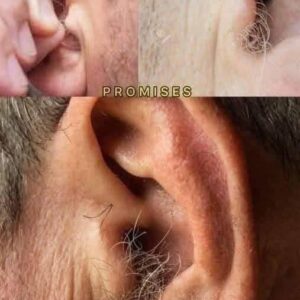When my mother passed away, I thought the pain of losing her would be the hardest thing I’d have to endure.
I was wrong.
At the reading of her will, the attorney’s voice was cold and factual: *“All monetary assets and property are to be transferred to my eldest daughter, Clarissa.”* That was it. No explanation, no mention of me.
Clarissa smirked, practically glowing with pride. She had always been the favorite—or at least, she made sure everyone believed she was. She never called Mom unless she wanted something. Designer bags. A “loan.” A way to fix the messes she always created.
Meanwhile, I was the one who sat by Mom’s hospital bed every weekend, who brought her soup when chemo made her nauseous, who handled the paperwork and insurance when she was too tired to lift her head.
I didn’t expect a fortune—but I didn’t expect to be erased, either.
After the reading, I was numb. I quietly got up and walked out. I didn’t want Clarissa’s fake sympathy or the lawyer’s impersonal stare. I just needed air.
As I stepped out into the hallway, someone called my name.
“Wait—Miss Lennox?”
I turned. It was Dr. Amir, my mother’s longtime physician. He looked hesitant but kind.
“I need to give you something,” he said gently.
I blinked, confused. Then he reached into his coat pocket and pulled out a small, sealed envelope. It had my name written in my mother’s familiar cursive—shaky, but unmistakable.
“She gave this to me weeks before she passed,” he explained softly. “Said it was only for you. She didn’t want anyone else to know.”
My hands trembled as I opened it. Inside was a single folded letter, and a small key taped to the back. The first line made me gasp:
*“My sweet girl, if you’re reading this… I know Clarissa got what she wanted. But you? You got what mattered. My love, always.”*
Tears spilled down my cheeks.
The letter went on to explain that my mother had suspected Clarissa would manipulate her toward the end—especially when she became weaker and more confused. Clarissa had already been pressuring her about the will, and my mother was tired of fighting. She gave in—not because she loved Clarissa more, but because she didn’t want to spend her final weeks in arguments.
But she hadn’t forgotten me.
The key was for a safety deposit box in a small local credit union. I went there the next morning.
Inside, I found a velvet pouch containing my mother’s wedding ring, a locket with a childhood photo of the two of us, and a handwritten journal filled with memories—our late-night talks, her favorite recipes, my first piano recital, and how proud she was of the woman I’d become.
And at the bottom of the box?
A cashier’s check for \$75,000.
There was a note with it, written in the corner of a napkin:
*“This is yours. I know you’ll use it wisely. Clarissa wanted everything… but you deserved peace. Love, Mom.”*
I clutched that note to my heart and sobbed—not because of the money, but because *she hadn’t forgotten me after all.*
Clarissa may have inherited the house and the bank accounts, but I got something far more valuable: My mother’s *truth*, her *love*, and her *trust.*
And that was worth more than anything money could ever buy.




